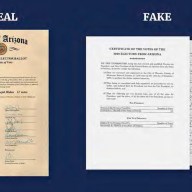It was only eight years ago that the International Criminal Court came into existence. While the court – meant to prosecute crimes against humanity committed all over the world – has been met with plenty of criticism, its chief prosecutor, Luis Moreno Ocampo, tells us that it’s a matter of time before justice arrives for the cases on his docket, which include those against Libya’s Muamarr Gaddafi and Sudan President Omar Al-Bashir. With a new documentary out that follows Ocampo in his work at the ICC, “The Prosecutor” shows the complex work this man has in hand. And he still maintains that it’s the best job in the world.
What are you hoping that audiences will take away from this documentary about your work?
People have to know that it’s an institution for the international community, which has a mission to an impunity for the most serious crimes in the world and people have to know they can submit information to us. The movie shows this institution working to bring justice for the worst crimes when no one else will bring justice.
Exiled leader of Libya Muammar Gaddafi has said that he will fight until he’s dead. Do you expect to see him at the International Criminal Court?
We have a warrant there, so that’s the important thing. The Libya case, sounds like everything was working the right way because as soon as the crime started, the media showed it and then the security counsel acted and requested our intervention. Without that, we cannot intervene…. We’ll see what happens after but this frames the issue in a different way and I think this should be the norm in the future. If there are many people like Gaddafi in charge of many countries, you have a problem, no? The fact that we are helping to control people who abusing their power with crimes, we are making it a safer world – not just in Libya – in the world.
But do you think you will bring him to justice?
Moreno-Ocampo: I think for us, if our warrant helps to stop the crime, that’s a big achievement. If we can arrest them, we’ll see. It takes time, sometimes. We have 26 people that we have warrants out for and ten are still fugitives, so there are still people at large, including Gaddafi. But it’s a matter of time.
Sudan’s president Omar Al-Bashir has been indicted by you for crimes against humanity but continues to travel and is still in power, so doesn’t that make the ICC seem ineffective?
No because, no judge has his own police. So, the responsibility for Al-Bashir is the state’s, following the security counsel’s resolution. It’s a challenge for the entire world, not for the ICC. But in fact, he’s not going everywhere. He’s going to a few countries for a few hours. In fact, he’s a fugitive president. He’s not under house arrest, he’s under country arrest, with a few hours to move about. I think Al-Bashir’s a matter of time. Maybe two years, six years, ten years, he will meet justice.
In the film you discuss the Palestinians approaching you about war crimes committed by Israel. Where does that case stand today?
Moreno-Ocampo: It’s a legal analysis first, as to if the Palestinians can be a state. As you know, that is a current debate. Normally this issue should be defined before I can start an investigation because the state can accept jurisdiction. If Palestine is not a state, I cannot start an investigation.
What do you say to critics who believe it’s impossible to have an International Criminal Court?
Now it’s a reality. This was a good question eight years ago when I started, but now, ask the vice president of the Congo. He’s still one of the most popular leaders in the Congo and he wanted to run elections in the Congo but he’s in jail, so ask him how real we are.
How do you remain an optimist despite how trying each part of this process is?
Because it’s a fascinating mission that they gave to me. I am the prosecutor to do justice for victims around the world. It’s the best job in the world.
The purpose of ‘The Prosecutor’
“The New York Times used the word ‘holocaust’ to describe what happened in the second World War in 1959. Fifteen years later, they used holocaust without a capital letter. The understanding “Holocaust” [with a capital H] took 10 years more. What happened in the middle? Two movies – “The Diary of Anne Frank” and “The Nuremberg Trials.” The media helps to understand what happens today, but movies have a long-term impact.”
Watch “The Prosecutor” on Sunday at 8 p.m. on The Documentary Channel.

















